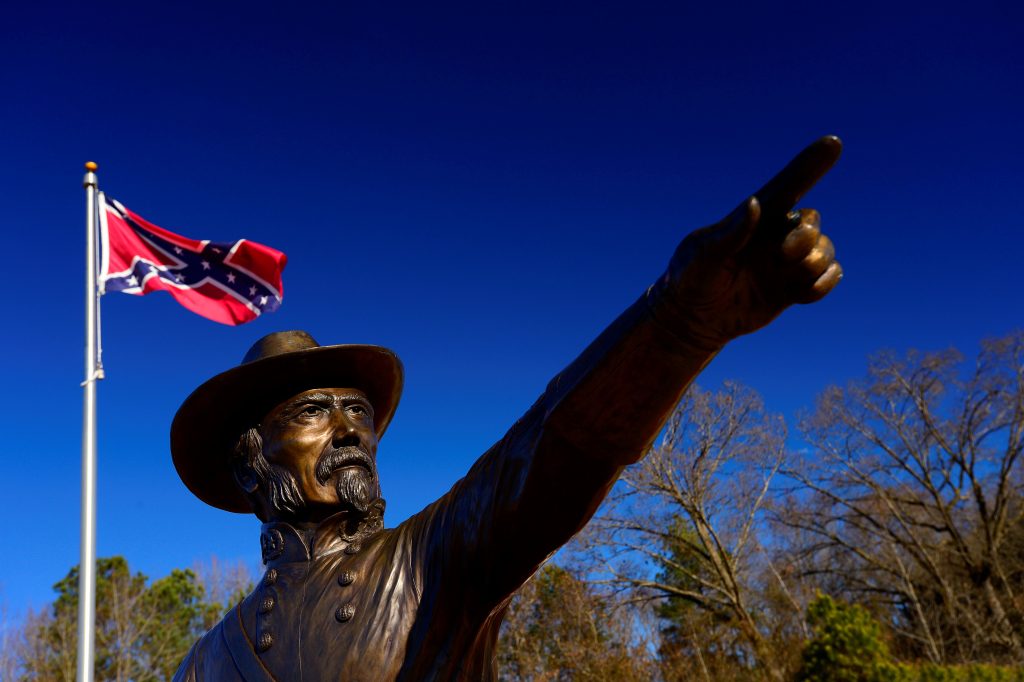A Thousand Words a Battle: Bentonville
Bentonville
March 19, 1865

General Joseph E. Johnston faced the challenge of stopping General William T. Sherman’s armies as they marched across eastern North Carolina in the spring of 1865. Johnston gathered forces from various quarters, including weary garrison troops, anxious Junior Reserves, and the battered remnants of the Army of Tennessee.
At the small community of Bentonville, Johnston struck one of Sherman’s columns, hoping to destroy it before the rest of the Union army could arrive in support. The Army of Tennessee had been shattered at Nashville the previous December, and recuperated in northern Mississippi. Part of the army then moved to North Carolina to join Johnston’s command. The main Confederate army in the West, it had launched many fabled attacks like at Shiloh, Stones River, Chickamauga, Atlanta, and Franklin. On the afternoon of March 19, the Army of Tennessee launched its last great attack.
Its ranks were thin and many units were severely understrength. The men were exhausted from short rations and long marches. Joined by troops from the North Carolina Junior Reserves and the Department of the Carolinas, the veterans from the Army of Tennessee stepped off for a massive attack that was sure to break the Union forces before them.
Colonel Charles Broadfoot of the 1st North Carolina Junior Reserves looked up and down the line as they were about to step off. He wrote,
It looked like a picture and at our distance was truly beautiful. Several officers led the charge on horseback across an open field in full view, with colors flying and line of battle in such perfect order as to be able to distinguish the several field officers in proper place and followed by a battery which dashed at full gallop, wheeled, unlimbered, and opened fire. It was gallantly done, but it was painful to see how close their battle flags were together, regiments being scarcely larger than companies and [the] division not much larger than a regiment should be.
General Edward Walthall, commanding a division on the end of the line, said,
I have been in all, or nearly all the battles fought by the Army of Tennessee, and have seen many brave sights, but nothing comparable to this.
General Alexander P. Stewart, watching from the Confederate left flank, recalled,
It was an inspiring sight . . . to see the firm, steady lines, their intrepid commander towering above them on his horse, advancing under a shower of bullets into the storm of battle . . .
A North Carolina artilleryman, whose vantage point allowed him to see the entire attack unfold, wrote that it was “the most splendid thing I ever witnessed.”
On the receiving end of this assault was Lieutenant Marcus Bates of the 21st Michigan. They were sheltered in the woods, and as they looked out across the open fields before them, they saw the Army of Tennessee emerge and advance directly upon them. Bates wrote,
As far as we could see on both our right and left they were coming in unbroken lines with that old yell we had learned to know so well. We held our position, keeping up a continuous and rapid fire, until we could plainly see their trap closing around us as they enveloped our flanks and subjected them to their fire. It was impossible to maintain our position.
The Confederate attack overwhelmed the Union defenders, driving them back about a mile and nearly driving the Federals entirely off the field. They held on in desperate fighting, ending the last assault of the Army of Tennessee.[1]
— Bert Dunkerly
[1] Bradly, Mark L. The Battle of Bentonville. Campbell, CA: Savas Woodbury Publishers, 1996, p. 204, 211.
Bert, I’m John Butler, President of the Brunswick Civil War Round Table (BCWRT). Can we reprint this article on Bentonville in our Newsletter. We will give you proper credit.
Thanks
John Butler
jlbutler2007@gmail.com
John, of course, thank you! Glad you enjoyed this.
And so Sherman, after marching through Georgia and the Carolinas to avoid coming to final tactical grips with the Army of Tennessee, comes to grips with the Army of Tennessee. He should have done it months before, or marched straight to Virginia to overwhelm Lee. But then ephemeral victories over barns, warehouses and livestock is so much more rewarding.
It could definitely be argued that if Sherman had not avoided fighting but gone after the enemy army he would have ended the war in the Carolinas sooner.
One of the best in the series.